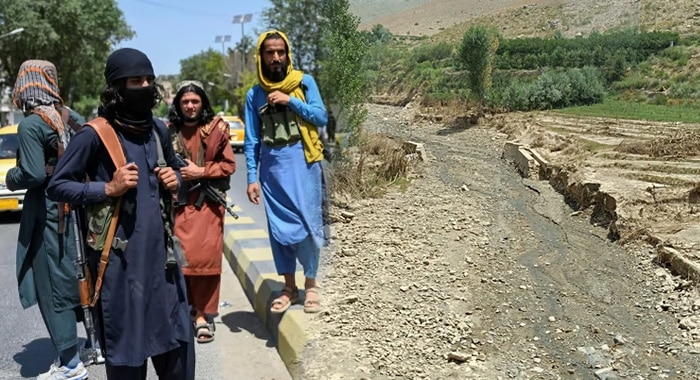Afghanistan’s environmental emergency has reached “dire and alarming” levels, according to Matiulhaq Khalis, head of the Taliban-run National Environmental Protection Agency, who appealed for urgent global cooperation to address the crisis.
Speaking at a conference on Saturday, Khalis outlined the devastating toll of climate change and environmental degradation, admitting that decades of war, mismanagement, and neglect have left the country dangerously exposed. The event, held in Mazar-e-Sharif, brought together Taliban officials from Balkh province, representatives of aid agencies, and environmental activists.
According to the agency’s own statement, Afghanistan ranks among the world’s most climate-vulnerable nations, with worsening droughts, desertification, and vanishing water resources threatening millions. Noorul Hadi Abu Idris, the Taliban’s deputy governor for Balkh, warned that around 75 percent of land in the north, west, and south is being swallowed by desertification, while recurring droughts are crippling agriculture and devastating ecosystems.
However, critics argue that the Taliban’s policies have exacerbated the crisis. Years of environmental neglect under insurgent control, combined with deforestation, over-extraction of groundwater, and unchecked resource exploitation, have accelerated the collapse of ecosystems.
Khalis himself acknowledged that conflict, soil erosion, and rising temperatures are destroying Afghanistan’s natural balance. Yet, observers note that Taliban governance—marked by isolation from the international community, restrictions on NGOs, and limited environmental regulation—has further limited the country’s ability to respond.
Earlier this year, the International Organization for Migration reported that nearly five million Afghans were affected by floods and avalanches in early 2025. Meanwhile, the International Committee of the Red Cross warned of a dramatic drop in groundwater levels, especially in Kabul, raising fears of a looming water crisis.
Environmental experts warn that without immediate action, Afghanistan could face an irreversible ecological collapse—one made worse by the Taliban’s inability to effectively govern and engage with the world.





